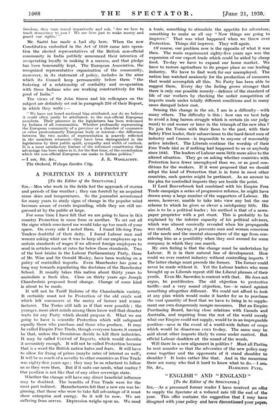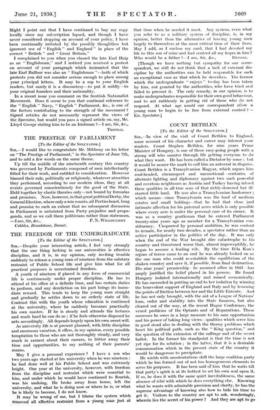" ENGLISH " AND " ENGLAND "
[To the Editor of the SPECTATOR.] Sni,—As a presumed former reader I have received an offer to supply the Spectator at a reduced rate till the end of the year. This offer contains , the suggestion that I may have disagreed with your policy and have discontinued your papell
Might I point out that I have continued to buy my copy locally since my subscription lapsed, and though I have never considered stopping on account of your policy, I have been continually irritated by the possibly thoughtless but ignorant use of " English " and England " in place of the correct " British " and " Great Britain."
I complained to you when you classed the late Earl Haig as an " Englishman," and I noticed you received a protest on account of your paragraph which insinuated that the late Earl' Balfour was also an " Englishman "—both of which protests you did not consider serious enough to place among your principal letters. It may be a sop to your English readers, but surely it is a discourtesy—to put it mildly—to your original founders and their nationality.
In a recent issue you comment on the Scottish Nationalist Movement. Does it occur to you that continual reference to the " English " Navy, " English " Parliament, &c., is one of the factors contributing to the strength of the movement ? Signed articles do not necessarily represent the views of the Spectator, but would you pass a signed article on, say, Mr. Lloyd George stating him to be an Irishman ?—I am, Sir, &c., THISTLE.









































 Previous page
Previous page